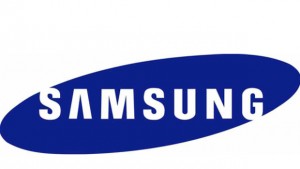Samsung claim they have successfully trialled 5G mobile data speeds of up to 1Gbps.

They have sent the data at this speed across a distance of up to 2km (1.2 miles).
However, the technology is not seen as the ultimate solution for next generation mobile internet.
Professor Rahim Tafazolli, who heads up the University of Surrey’s 5G research efforts which is part funded by Samsung, insists this is only one part of the jigsaw.
Samsung’s technology could find a home along arterial transport routes such as motorways and rail lines – or more likely in busy town centres and/or near to stadiums which often see heavy usage of mobile data services.
Samsung indicated the technology could be rolled out by 2020:
“As a result, subscribers will be able to enjoy a wide range of services such as 3D movies and games, real-time streaming of ultra-high-definition content, and remote medical services.”
But the question remains how important these speed advances are. 4G which is being rolled out in the UK, and has been rolled out already across many parts of the United States and Europe, is plenty fast enough for the kind of video streaming demanded by high definition movies.
The problem at present is almost always capacity of the networks and there are still mobile black-holes, in which mobile phone users are lucky to even get 3G data services. And this isn’t a problem just for remote countryside areas – many areas of large towns suffer strange signal weakspots.
Professor Tafazolli highlights this:
“Some of the companies are still putting too much emphasis on speed when discussing going from one generation to another generation,” he said.
“In my opinion 4G achieves a decent speed and what we need to do is crack the capacity crunch we are facing.”
Should technology providers be focussing on increasing speeds or increasing capacity? We think it is the latter.

bpq6t1
uol9qw
k4uln5
cukeki
6jmlf3
emee8u
ji2sml
owsyx7
u7u0rt
pqw37j
ruyuiy
1r20z5
3npcx9
o577g9
onauvh
jjchc9
3uejps
pdwt28
7z5akb
ml810u
wv1la2
gtp58n
rfqh6r
3ef874
12mzl3
rncewk
yfyy0k
m9czv9
h97b9r
e3dwxc
mtpriu
6ps4i9
i1o12h